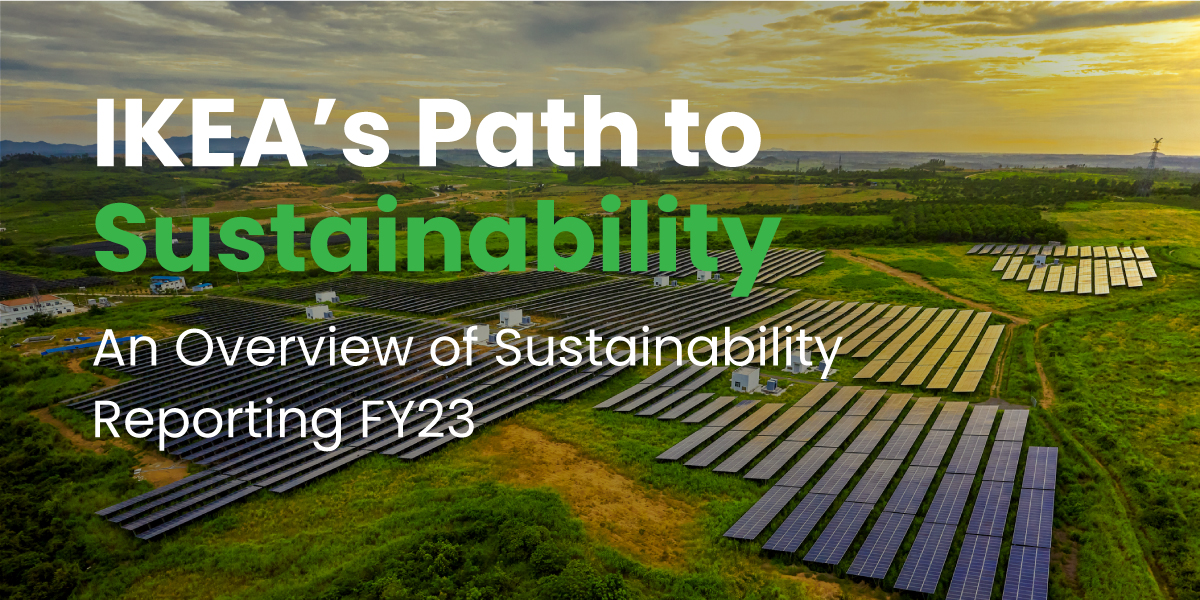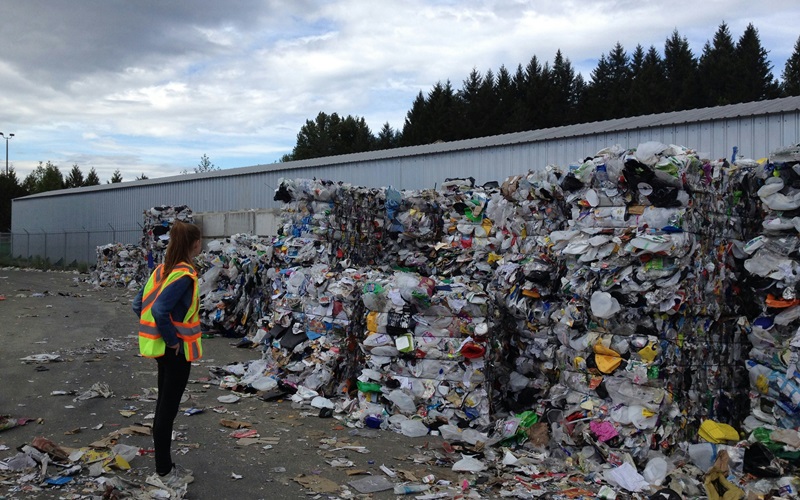The requirement for “green talent” has become a thundering call to action in the rapidly changing effect of climate change. According to LinkedIn, job advertisements relating to climate change have increased by 8% per year over the last five years, indicating a growing industry in need of experienced people. This rise in demand extends beyond traditional boundaries, infiltrating businesses such as energy production, manufacturing, and construction, as well as surprising inroads into the entertainment industry, media, and different governmental areas. Employers aggressively recruit graduates with green abilities, recognizing their critical role in guiding the transition to a sustainable economy.
Careers in climate change mitigation range from environmental scientists and ecologists to project managers directing sustainable energy efforts and communication specialists supporting public participation. As governments throughout the world propose creative policies and commit to saving the planet, the global effort to reduce emissions, mitigate the consequences of extreme weather, and protect our ecosystems is becoming more concerted. While considerable progress has been made, the urgent need for quicker and more widespread change looms large, necessitating individuals with the talents and inventive ideas to drive meaningful change. According to projections, careers in renewable energy, environmental research, policymaking, and planning will generate an astounding 24 million employment over the next decade, highlighting the growing importance of sustainability in defining the future. Here are some of the job’s description:
Air Quality Engineer
Air quality engineers, also known as air pollution control engineers, help to reduce air pollution by assessing, analyzing, and developing plans to enhance air quality. These specialists, who work in both the public and private sectors, use technologies such as computer modeling and chemical analysis to assess pollution levels, ensure compliance with emissions guidelines, and assist with permit applications. Their tasks include designing industrial ventilation systems, navigating regulatory frameworks, and disseminating findings to stakeholders and government agencies.
Arborist
Arborists, also known as arboriculturists, are experts in the care and management of trees in many contexts. Their knowledge ensures that trees are both aesthetically beautiful and safe. They are certified and highly qualified to give advice on tree location, species-specific maintenance, and to execute various duties such as pruning, cutting, and disease treatment. Arborists protect trees during construction, analyze dangers, and provide expert advice, ensuring the safety of trees and property.
Chief Sustainability Officers (CSOs)/ Director of Sustainability
In the face of rising climate-related catastrophes, Chief Sustainability Officers (CSOs) are critical in directing corporations toward ecologically responsible actions. CSOs combine environmental awareness with social responsibility by developing strategies to reduce environmental impact, enhance sustainability across departments, and assure regulatory compliance.
sustainability courses from top universities
City/ Urban Planners
City planners, also known as urban planners, manage land usage in cities and communities, addressing economic development, transportation, zoning, and building design. They aim to revitalize areas, plan new facilities, and collaborate with stakeholders to collect and analyze data, evaluate community growth factors, and ensure compliance with regulations.
Conservation Scientist
Conservation scientists are professionals who research and protect ecosystems and endangered species to preserve the natural world. They conduct research, assess biodiversity threat data, and create conservation programs to protect wildlife and habitats. They interact with stakeholders across many sectors, such as government agencies and non-profits, to implement conservation legislation, educate the public, and develop partnerships for effective conservation methods.
Corporate Social Responsibility (CSR) Manager
CSR Managers guarantee that firms’ activities are ethical and sustainable, connecting strategies with societal issues. They organize operations across divisions, form collaborations with external organizations, and convey CSR strategies to stakeholders. Measuring social effect, encouraging innovation, ensuring compliance, and raising sustainability awareness are all responsibilities.
Countryside Officer
The duty of a countryside officer includes attracting visitors to rural regions, raising environmental awareness, and preserving the countryside for future enjoyment. Patrolling sites for responsible recreation and safety, managing habitats to support wildlife, supervising visitor centers, executing repairs, developing environmental awareness, and undertaking wildlife surveys are all tasks.
Community Outreach Directors
Community Outreach Directors direct initiatives that involve the community in an organization’s objective to promote sustainability. They collaborate with volunteers, funders, and local businesses to plan events, manage teams, and foster relationships to promote sustainability.
Environmental Affairs Director
The Environmental Affairs Director ensures environmental health and safety rules are followed by overseeing policies and programs in accordance with federal, state, and local standards. They supervise employees, enforce safety regulations, conduct risk assessments, supervise workers’ compensation programs, file regulatory reports, represent the company in compliance meetings, and stay current on environmental changes.
Ecologist
An ecologist investigates the interactions between organisms and their environments, trying to conserve ecosystems and alleviate environmental problems such as species extinction and forest fires.
Energy Analysts
Energy analysts assess building energy efficiency using data analysis and provide conservation recommendations. They conduct audits, evaluate systems, make recommendations for changes, and manage projects while monitoring energy consumption.
Environmental Analyst
Environmental analysts, sometimes known as environmental scientists or specialists, do research to protect, clean, or preserve food, land, water, and air. They specialize in subjects such as climate change, the effects of environmental factors on human health, and developing plans to repair polluted sites.
Environmental Compliance Specialist
Environmental compliance specialists guarantee that firms follow environmental regulations. With the growing worry about climate change, this field provides a plethora of work prospects. Specialists check rule compliance, specialized in fields such as oil drilling monitoring and water treatment inspection.
Environmental Consultant
Environmental consultants advise businesses, organizations, and governments on environmental issues, ensuring regulatory compliance, avoiding risks, and encouraging sustainability. They conduct evaluations, analyze data, and provide recommendations to lessen environmental effects.
Environmental Engineer
An environmental engineer uses engineering methods to address environmental concerns, drawing on knowledge of soil composition, biology, and ecological processes to improve public health. Their duties frequently include developing waste management and recycling strategies and supervising methods to reduce air or water pollution.
Environmental Geologists
Environmental geologists play a key role in conserving soil and groundwater integrity by locating safe landfill, coal ash disposal, and nuclear facilities locations. They supervise the disposal of subterranean waste, provide advice on safe wastewater injection wells, and evaluate mining planning to guarantee environmental safety.
Environmental Health & Safety Specialist
EHS specialists oversee an organization’s Environmental, Health, and Safety (EHS) policies. They ensure workplace safety, manage safety programs, and handle environmental concerns. Their duties include training staff, maintaining compliance with regulations, and managing Environmental Management Systems.
Masters in Environment Management
Health & Safety Engineer
HSE engineers oversee occupational health and safety requirements and environmental compliance in industrial environments. Their duties include developing safety plans, evaluating procedures for compliance, developing safety policies, and managing emergencies. They examine industrial environmental impact and develop plans to decrease or eliminate such effects, ensuring that businesses run with minimal environmental impact.
Environmental Managers
Environmental managers, akin to occupational health and safety specialists, ensure workplace adherence to EPA or OSHA standards, evaluating operations across industries for safety and environmental compliance. Their duties involve checking for pollutants, formulating corrective policies, and testing operations to diminish pollutant outputs. They oversee energy standards, waste control, conduct research, develop proposals, and handle administrative tasks. In safety, health, and environmental management, they oversee assessments, audits, and provide hazard recognition training to staff.
Environmental Planners
Environmental planners work to ensure that construction projects adhere to environmental regulations to promote sustainable urban and regional development. They analyze sites, obtain permissions, and assess potential environmental implications, making recommendations as appropriate.
Environment Project Manager
As an environmental project manager, they oversee monitoring construction, waste management, and engineering projects while assessing their environmental impact. They determine how these initiatives affect the environment and maintain regulatory compliance.
Environmental Protection Specialists
Environmental protection specialists assess environmental health by conducting tests, compiling reports, presenting findings to stakeholders, and offering methods to address specific challenges. They focus on air and water quality, waste management, and contaminants, and specialize in issues such as climate change and pollution. Environmental law knowledge is essential for making informed decisions. Administrative work, data analysis, practice evaluation, training development, and water and soil lab tests are among their responsibilities.
Environmental Scientist
Environmental scientists work to safeguard the environment and human health by focusing on areas such as pollution remediation and conservation.
Environmental Technician
Environmental technicians work with engineers and scientists to ensure environmental compliance by checking equipment, processing hazardous waste, and collecting samples. For government agencies and consulting firms, they monitor pollution sources that harm public health, investigate complaints, and assess potential environmental dangers.
Environmental / Sustainable Engineer
Sustainability engineers preserve the environment by preventing pollution through biology, soil science, and chemistry. They oversee pollution control, waste management, and ensure that environmental standards are followed. Working on anything from field sampling to project management, these engineers evaluate data, prepare reports, and solve environmental problems, either alone or as part of a team.
ESG Analyst
An ESG (Environmental, Social, and Governance) analyst studies non-financial aspects of investment prospects such as environmental effect and public perception. They combine financial data with ESG issues to advise stakeholders, senior management, and clients on investment decisions in organizations such as private equity or wealth management.
Food Scientist
Understanding the role of a food scientist is essential before embarking on a career as one. Food scientists conduct research, development, and testing on ingredients and food to ensure human safety. They innovate food production, processing, and packaging technologies by leveraging life and physical sciences.
Forester
A forester, practicing forestry—the science, art, and profession of managing forests—encompasses diverse activities. They engage in ecological restoration, protected area management, and pursue various forest objectives. These objectives span raw material extraction, recreation, conservation, hunting, and aesthetics. Recent practices involve biodiversity, carbon sequestration, and air quality management in forestlands.
Geographic Information System (GIS) officers
Geographic Information System (GIS) officers use a variety of GIS software tools to do research and collect spatial and non-spatial data. These professionals oversee updating and maintaining GIS databases, which include features such as aerial or satellite imagery, latitude, and longitude coordinates, and manually digitized map pictures.
Geoscientists
Geoscientists undertake field investigations, collecting samples and doing on-site surveys. They use aerial images, geological samples, and various data sources to identify and estimate the magnitude of natural resource deposit
Grant writers
Grant writers play a vital role in maintaining charity efforts. They conduct research, write proposals, and present them to secure funding for sustainability-focused projects promoting environmental protection, social responsibility, and economic stability. They enable the implementation of renewable energy projects, conservation activities, and community engagement programs by using their skills in proposal formulation.
Hydrologists
Hydrologists study the movement of water in the Earth’s crust, examining how precipitation affects river flows, groundwater levels, and water evaporation into the atmosphere or oceans. They investigate the effects of rain, snow, and other precipitation types on surface water and groundwater dynamics, thereby providing a comprehensive understanding of water cycles and their environmental impact.
Landscape Architect
A landscape architect is experienced in techniques such as site analysis, inventory, planning, land use, planting design, grading, stormwater management, and sustainable design. They specialize in construction specifications, ensuring that building codes, as well as municipal and federal requirements, are followed. These experts balance site features, sustainability, and environmental concerns, creating designs that blend aesthetics and usefulness while adhering to legal guidelines for responsible and influential landscape architecture.
Natural Resource Specialist
Natural resource professionals play a key role in researching vulnerable habitats, formulating natural resource regulations, and protecting lives, property, and resources from wildfires. They inventory wildlife and plants, monitor ecosystems, assess environmental consequences, and put mitigation plans in place. Furthermore, these experts work to restore and protect endangered animal and plant species, making a substantial contribution to the preservation and sustainability of our natural ecosystems.
Recycling Officers
Recycling officers oversee local recycling initiatives, crafting waste reduction policies and managing reuse strategies. They typically operate within governmental departments like environmental or waste management services within county or district councils.
Renewable Energy Analyst
Renewable energy analysts evaluate the effectiveness of renewable energy sources, developing sustainable energy models adapted to building designs. They assess the efficacy and potential of various renewable energy sources, developing specific models to optimize energy use within buildings.
Renewable Energy Consultant
Renewable energy consultants provide specialist energy advice to businesses and organizations, as well as full energy audits and inspections. They use their experience to advise clients on the adoption and implementation of renewable energy sources. These consultants examine energy usage patterns, identify potential for implementing sustainable practices, and make strategic recommendations to improve the integration of renewable energy solutions.
Renewable Energy Engineer
Renewable energy engineers specialize in producing energy from renewable sources such as solar, wind, hydro, and marine energy. They oversee the design, implementation, and management of large-scale energy programs that use renewable sources. These engineers design and oversee the implementation of projects aimed at harvesting sustainable energy, assuring the efficient operation of renewable energy systems.
Residential Energy Efficiency Program Coordinator
They lead local, state, or federal initiatives to improve residential building energy efficiency. Their responsibilities include designing and managing the proper implementation of initiatives such as direct installation, education and audits, and rebate and loan schemes. These government and utility-funded initiatives drive projects to reduce energy use.
Senior Environmental Programs Specialist
Environmental Program Specialists are responsible for enforcing environmental standards and protocols in workplaces. They work with janitorial staff to maintain cleanliness and suitable waste disposal practices. When standards are violated, they investigate, report to administration, and assess the environmental impact. Hands-on tests are carried out to detect concerns, and solutions in accordance with environmental standards are provided.
Soil and Plant Scientists
Soil and plant scientists help to sustain food production by increasing agricultural productivity. Their research focuses on crop and livestock quality and quantity improvement. They develop new strategies for managing pests and weeds while assuring safety and effectiveness. They contribute to sustainable and higher-yielding agricultural practices by creating sophisticated procedures and methodologies
Solar Consultant
Solar consultants specialize in sales and support for residential solar energy systems, overseeing their installation and providing customer assistance throughout the process
Sustainability Analyst
Analysts in sustainability work with businesses and organizations to improve their social and environmental impact. They incorporate sustainable concepts into business strategy, raising awareness and delivering beneficial results.
Sustainability Coordinator
The Sustainability Coordinator is in charge of implementing policies and activities that promote local environmental, energy, economic, and social sustainability. They oversee managing, advising, and facilitating the development, implementation, and improvement of these activities.
Sustainability Excellence Associate (SEA)
The SEA certificate requires knowledge of key sustainability principles and awareness of sustainability concerns, trends, and frameworks. It assists individuals seeking a better understanding of and support for sustainability measures inside their organizations.
Sustainability Project Manager
Sustainability managers monitor the environmental and social aspects of a firm, developing strategies for environmentally responsible practices, social equality, and financial success.
Sustainability Specialist
Energy and resource conservation initiatives are developed and implemented by sustainability professionals in organizations and colleges. They play an important role in decreasing environmental impact through collaboration and creative ideas.
Sustainable Design Coordinator
Sustainable design coordinators give advice on product and program development to create environmentally conscious efforts within businesses with the goal of minimizing environmental harm.
Sustainable Supply Chain Manager
Managers of sustainable supply chains prioritize efficient manufacturing that is in line with environmental and societal goals. Their emphasis on governance techniques promotes waste reduction and the well-being of stakeholders.
Waste Management Officer
Waste management officials oversee waste disposal, collection, recycling, and treatment facilities, as well as guaranteeing effective waste management and cleanliness.
Water Resource Engineer
Water resource engineers monitor water infrastructure projects such as dams, canals, and pipelines, as well as control water usage by guaranteeing safe consumption
Wind Turbine Technician
Wind turbine technicians examine, maintain, and repair turbines, collect data, and aid with installations, ensuring that wind energy systems run properly and efficiently.
Zero-waste program manager
Managers of zero-waste programs support a comprehensive approach to waste management, with the goal of eliminating waste and changing the way materials circulate in society.
Zoologist or Wildlife Biologist
Zoologists research animal features and behavior in laboratories or zoos, whereas wildlife biologists examine how species interact with their environments, particularly in natural settings or in the wild.



